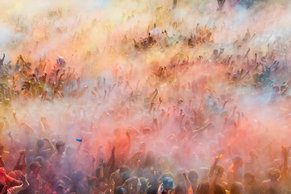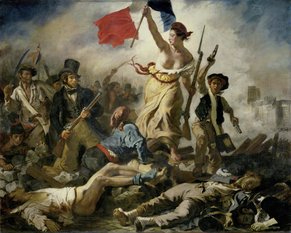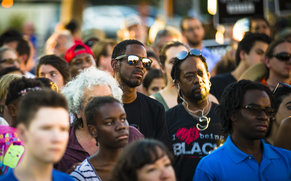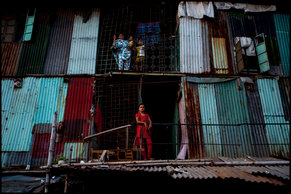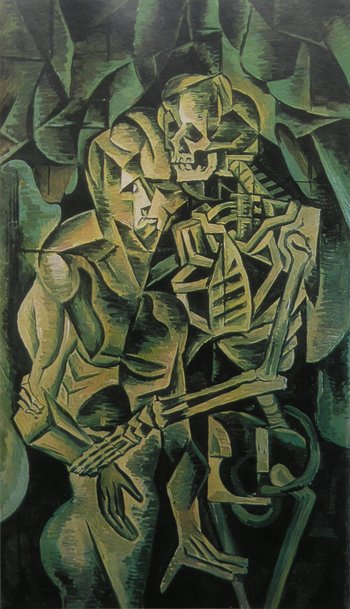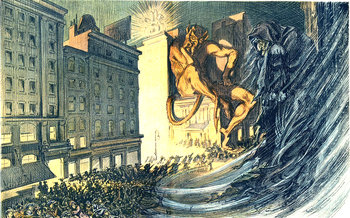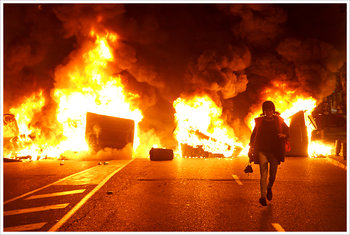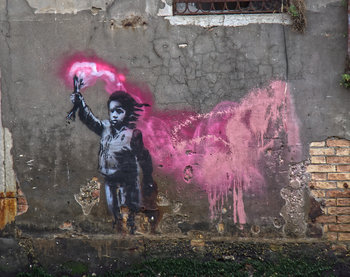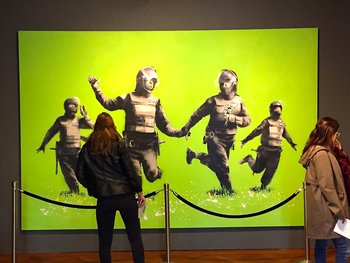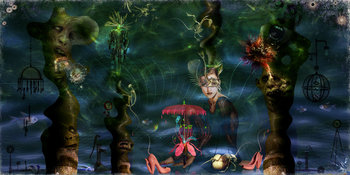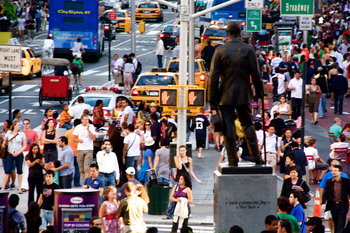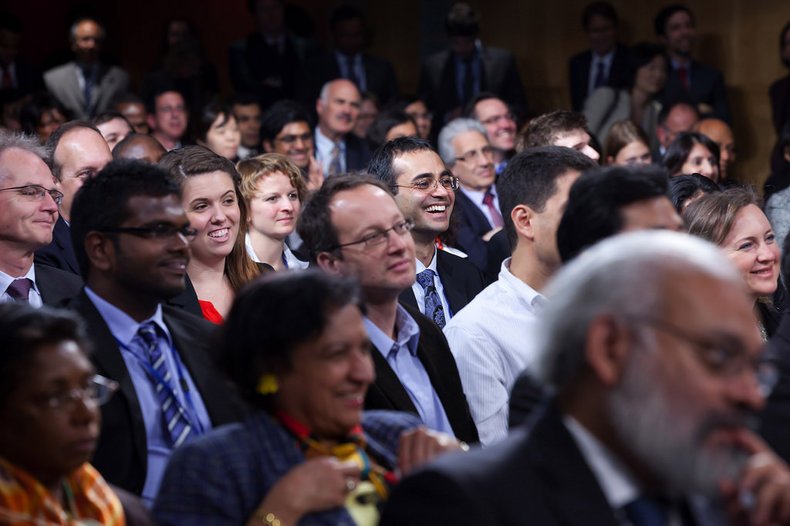
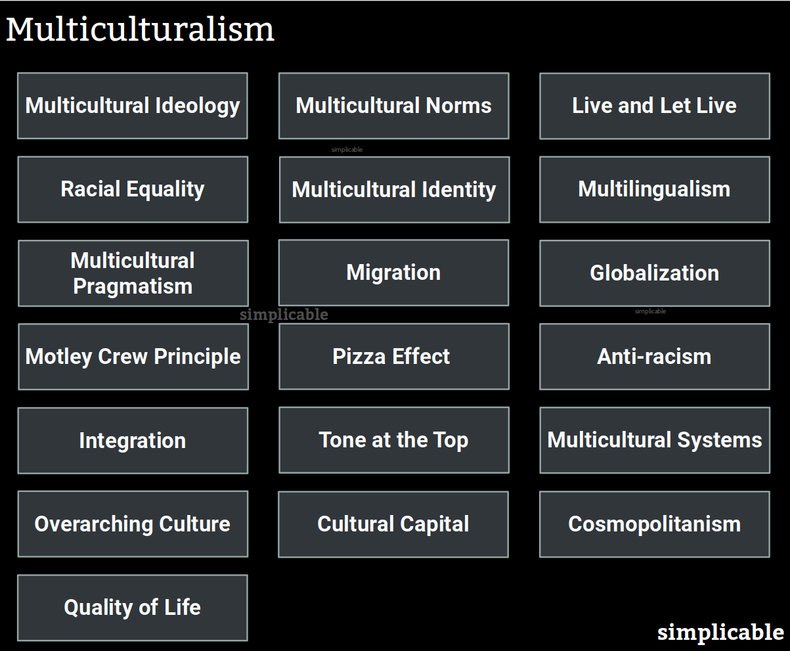
Multicultural Ideology
Multiculturalism can be either a system or an ideology. As an ideology, multiculturalism is the belief that the basis for peace and prosperity isn't rigid conformity to a single culture but rather diversity and tolerance.Multicultural Norms
Societies and cities require shared norms. However, these can include norms of mutual respect and tolerance for differences. For example, the norm that people speak their native language on the subway if they are with friends who can speak that language.Live and Let Live
Live and let live is a principle of tolerance for different ethnic groups, peoples, religions, cultures and languages. This was the core principle of the Habsburg Monarchy that occupied the throne of the Holy Roman Empire of the German Nation from 1440 to 1806 and produced kings or emperors of Bohemia, Hungary, Croatia, Galicia, Portugal, Spain, Austria, Austria-Hungary and Mexico. Multiculturalism isn't a new idea as it was demonstrated by ancient and medieval societies, particularly in Europe.Racial Equality
Multiculturalism calls for equal rights, freedoms and civic duty regardless of your race, ethnicity, religion or culture.Multicultural Identity
Multiculturalism recognizes that people may have multiple cultural identities that overlap. For example, a person who belongs to a nation, ethnic group and religion with each being an element of their identity.Multilingualism
Embrace of multiple languages. For example, nations that have multiple official languages. It is also common for nations to fund programs to teach and sustain the languages of Indigenous peoples and to recognize Indigenous languages as valuable cultural heritage. Languages related to recent or historical immigration may also be supported as opposed to oppressed. For example, street signs in both English and Mandarin in a neighborhood with a large Chinese Canadian population.Multicultural Pragmatism
Multiculturalism is often a pragmatic approach to creating a national identity and a productive society where civility reins. Culture is a resilient force that isn't easily assimilated. As such, it is arguably more pragmatic to build a society that specifically embraces this as opposed to fighting it. Canada is a model for this whereby the nation is set up to support two official languages, First Nations and significant levels of immigration under a shared Canadian identity of multiculturalism.Migration
Nations such as Australia, Canada and Singapore have historically produced economic growth by offering immigration to knowledge workers and wealthy individuals. Australia didn't have a recession for 29 years between 1991 and 2020 based on this model. Many of the nations with the highest GDP per capita also have high rates of immigration. As global fertility rates decline, competition for hard working, talented, knowledgeable and wealthy immigration is likely to increase. Multiculturalism is perhaps an ideal model for attracting talented labor to a nation, city or organization.Globalization
Multiculturalism positions a society, city or organization to compete in an increasingly global economy. For example, an American firm that employs people from hundreds of diverse backgrounds may navigate foreign markets with ease. Isolating yourself and insisting that everyone you deal with follows your culture doesn't feel like a formula for success in a world that is rapidly connecting and integrating.Motley Crew Principle
The motley crew principle is the theory that creativity benefits from diverse backgrounds and perspectives. This is arguably the reason that creative pursuits such as art, filmmaking, music and fashion tend to thrive in multicultural climates such as New York, London or Amsterdam.Pizza Effect
The pizza effect is the tendency for cultures to influence each other or copy each other. Each copy is imperfect thus creating new culture. For example, California rolls that are an American version of Japanese sushi that eventually became popular in Japan itself. In this way, multiculturalism becomes an engine for creating new culture as immigrant communities eventually develop unique culture that is distinct from their roots.Anti-racism
It is common for nations, cities and organizations that embrace multiculturalism to use media and education to create awareness of racism, intolerance and biases.Integration
Although multiculturalism protects everyone's right to follow a culture it doesn't encourage segregation into isolated communities. Multicultural nations and cities are more likely to actively promote interaction and integration. For example, distributing small units of public housing throughout every district and neighborhood of a city as opposed to creating gigantic regions of public housing. Likewise, efforts may be made to make politics, government, education and the private sector as diverse and integrated as possible. This is based around the idea that the best way to be tolerant of each other is to know each other.Tone at the Top
A multicultural society requires leadership that exemplify multicultural values. Where leadership displays intolerance or ignorance this serves as a green light to the entire system to do the same.Multicultural Systems
Multiculturalism is more than an empty ideology but has been implemented as systems that support multiple cultures. For example, a the Human Rights Commission of Canada that allows anyone to make a human rights complaint that is investigated and addressed. This means that government officials, businesses and individuals are held accountable for racial harassment or discrimination without need of resource intensive litigation.Overarching Culture
Multiculturalism requires an overarching culture that is used to bridge between cultures such as a common language, shared identity and shared experiences. For example, a public holiday that celebrates the founding of a multicultural nation.Cultural Capital
Cultural capital is the ability to influence within the context of a culture. This gets more complex in a multicultural environment. For example, businesses in Canada often market directly to Chinese Canadians and may offer services in Cantonese and Mandarin.Cosmopolitanism
Cosmopolitanism is the international version of multiculturalism -- the belief that community can exist at the global level regardless of cultural differences. This is exemplified by super cultures such as business or sport.Quality of Life
Multiculturalism allows for a great complexity of culture to exist in the same city and nation. This can be viewed as stimulating and conductive to quality of life. For example, a city such as New York that has dozens of ethnic neighborhoods that each add to the life of the city.Multiculturalism vs Melting Pot
Multiculturalism calls for a society that supports multiple cultures. The opposite approach is known as a melting pot whereby immigrants are expected to conform the the local culture. The United States is historically viewed as a melting pot whereby immigrants become fully American with time wherever they may have originated. This requires a strongly unified, accepting and attractive culture that immigrant families find so irresistible that their cultural roots fade with time. Where this doesn't occur, a melting pot system may be out of touch with realities of a society such that civility is likely to breakdown.
A melting pot can be oppressive and unfair, particularly in regard to Indigenous peoples. For example, the Canadian Indian residential school system that historically removed Indigenous children from their families to try to assimilate the children to white, Christian culture in schools that resembled a prison system.
Summary
Multiculturalism is belief in the peaceful and productive coexistence of multiple cultures based on civility, equality and mutual respect.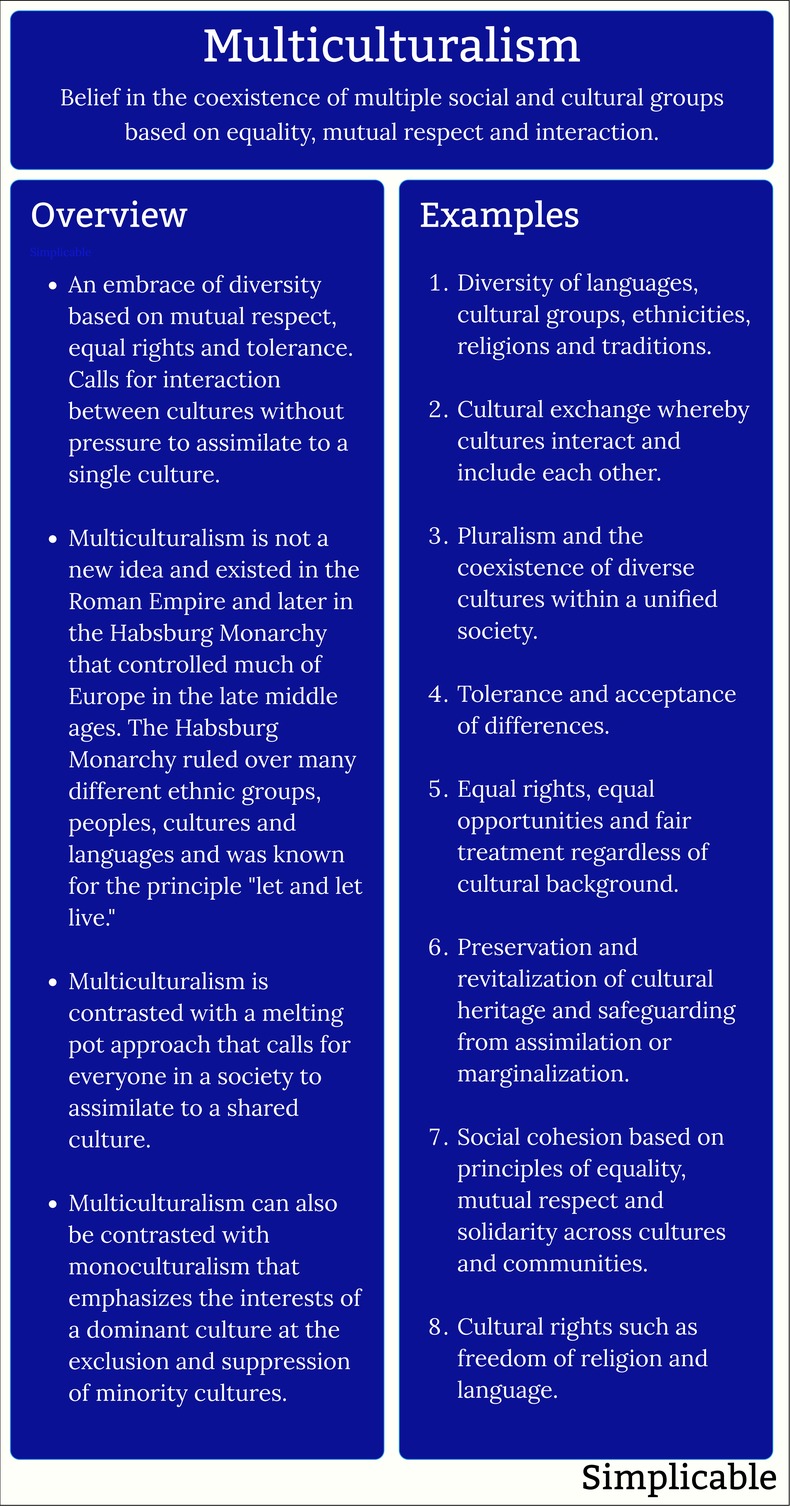
| Definition: Multiculturalism | ||
Type | ||
Definition | A society, city, organization or community that is structured to support cultural pluralism. | |
Related Concepts | ||


